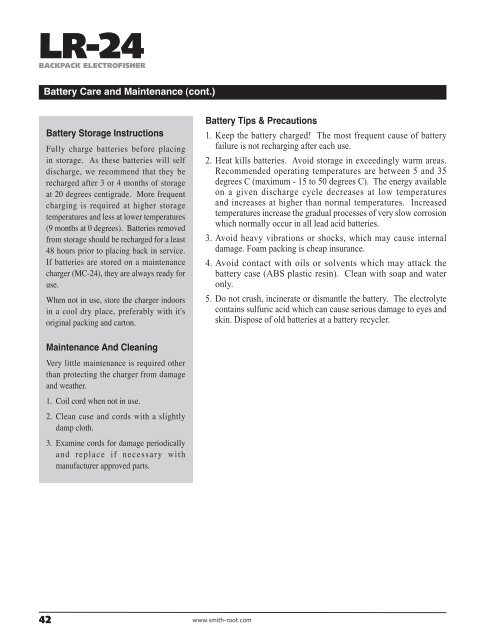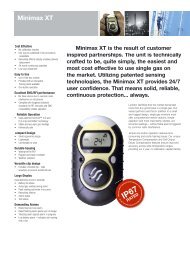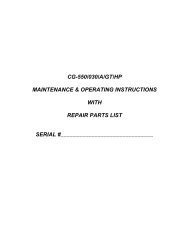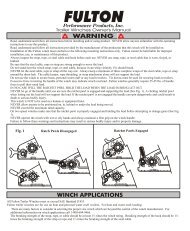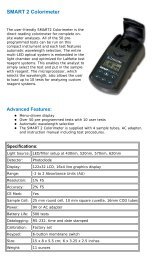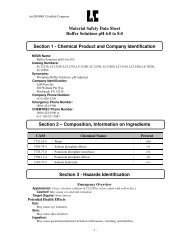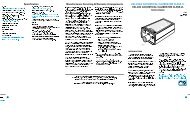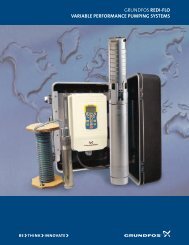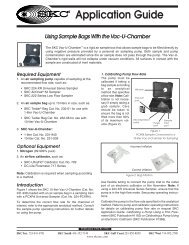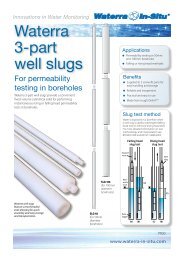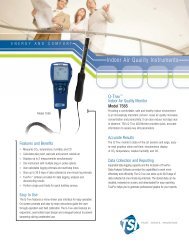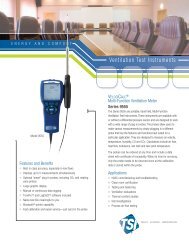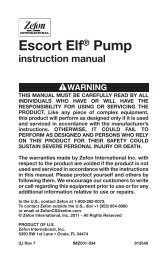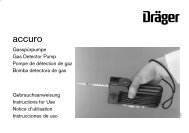LR-24 Electrofisher - Field Environmental Instruments
LR-24 Electrofisher - Field Environmental Instruments
LR-24 Electrofisher - Field Environmental Instruments
Create successful ePaper yourself
Turn your PDF publications into a flip-book with our unique Google optimized e-Paper software.
<strong>LR</strong>-<strong>24</strong><br />
BACKPACK ELECTROFISHER<br />
Battery Care and Maintenance (cont.)<br />
Battery Storage Instructions<br />
Fully charge batteries before placing<br />
in storage. As these batteries will self<br />
discharge, we recommend that they be<br />
recharged after 3 or 4 months of storage<br />
at 20 degrees centigrade. More frequent<br />
charging is required at higher storage<br />
temperatures and less at lower temperatures<br />
(9 months at 0 degrees). Batteries removed<br />
from storage should be recharged for a least<br />
48 hours prior to placing back in service.<br />
If batteries are stored on a maintenance<br />
charger (MC-<strong>24</strong>), they are always ready for<br />
use.<br />
When not in use, store the charger indoors<br />
in a cool dry place, preferably with it's<br />
original packing and carton.<br />
Battery Tips & Precautions<br />
1. Keep the battery charged! The most frequent cause of battery<br />
failure is not recharging after each use.<br />
2. Heat kills batteries. Avoid storage in exceedingly warm areas.<br />
Recommended operating temperatures are between 5 and 35<br />
degrees C (maximum - 15 to 50 degrees C). The energy available<br />
on a given discharge cycle decreases at low temperatures<br />
and increases at higher than normal temperatures. Increased<br />
temperatures increase the gradual processes of very slow corrosion<br />
which normally occur in all lead acid batteries.<br />
3. Avoid heavy vibrations or shocks, which may cause internal<br />
damage. Foam packing is cheap insurance.<br />
4. Avoid contact with oils or solvents which may attack the<br />
battery case (ABS plastic resin). Clean with soap and water<br />
only.<br />
5. Do not crush, incinerate or dismantle the battery. The electrolyte<br />
contains sulfuric acid which can cause serious damage to eyes and<br />
skin. Dispose of old batteries at a battery recycler.<br />
Maintenance And Cleaning<br />
Very little maintenance is required other<br />
than protecting the charger from damage<br />
and weather.<br />
1. Coil cord when not in use.<br />
2. Clean case and cords with a slightly<br />
damp cloth.<br />
3. Examine cords for damage periodically<br />
and replace if necessary with<br />
manufacturer approved parts.<br />
42 www.smith-root.com


